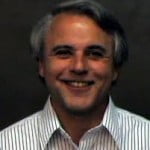Portals to the Psyche: Spirit Involvement – Isa Gucciardi (Is.16)
Isa Gucciardi, Ph.D.
 Dr. Gucciardi examines the conflicts between western “scientific” approaches to Dissociative Disorders (DD) and those of shamans and today’s spirit releasement approaches. She recommends that the task of therapists working with DD is to let their clients lead the way to “their own maps of their own psyches,” whatever that map might contain, because it is only there that healing can occur. Dr Gucciardi appeared in last year’s Journal.
Dr. Gucciardi examines the conflicts between western “scientific” approaches to Dissociative Disorders (DD) and those of shamans and today’s spirit releasement approaches. She recommends that the task of therapists working with DD is to let their clients lead the way to “their own maps of their own psyches,” whatever that map might contain, because it is only there that healing can occur. Dr Gucciardi appeared in last year’s Journal.
Multiple Personality Disorder (MPD), now called Dissociative Disorder (DD), has only recently been recognized as a separate disorder within the field of modern western psychology. When Freud’s theories reigned supreme in this field, most cases of dissociative disorders were misdiagnosed as schizophrenia. In 1980, the American … Read the rest





